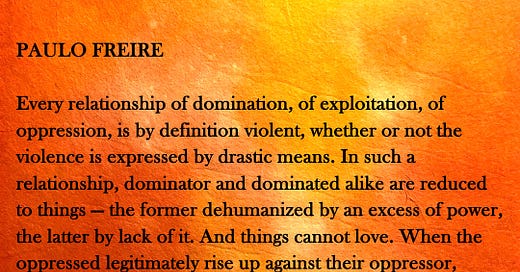I have kept a commonplace book since first learning of them in the early 80s. At first I understood these as a simple means of collecting quotes. I did this for years and in 1993, after my friend dian marino passed away, I made a selection of my Commonplace book quotes and produced a Book of Days - one quote per day - as a meditation and critical reflection aid. I hand-bound 50 copies which I then shared with mutual friends of dian.
I have also been a journal writer since I was a teenager and, while i rarely go back to my journals, I quite regularly consult my Commonplace Book. I have found myself returning over and over again to certain quotes - either simply to reflect further upon them or to include them in some piece of writing (usually articles or letters to friends). My Commonplace Book practice has expanded and now exists both as physical and digital notebooks that include quoted passages, poems, pieces of dialogue, images, recipes, lists of all kinds. Not exactly a journal, for which I have other books (and favoured pens), my Commonplace Book is my extended memory.
Starting with this post, which I call Passages and Dialogue, I will periodically share a quote that has been particularly meaningful to me either for its ideas or its eloquence and, often, both. And I will share some of my thoughts about its import. I would like to experiment with this as a form of popular education dialogue and hope that you might accept my invitation to share your own responses and, in this way, perhaps together learn more about the world that we share and that needs our care and dialogue more than ever before in human history.
To begin, here's a passage from Paulo Freire (pictured above against an orange background).
Every relationship of domination, of exploitation, of oppression, is by definition violent, whether or not the violence is expressed by drastic means. In such a relationship, dominator and dominated alike are reduced to things - the former dehumanized by an excess of power, the latter by lack of it. And things cannot love. When the oppressed legitimately rise up against their oppressor, however, it is they who are usually labelled "violent," "barbaric," "inhuman," and "cold." (Among the innumerable rights claimed by the dominating consciousness is the right to define violence, and to locate it. Oppressors never see themselves as violent.) (Education for Critical Consciousness, Continuum, 1973, pp. 10-11)
I first read Paulo Freire's Pedagogy of the Oppressed in 1980 and understood little except that I knew I needed to understand it better. I struggled to do just that. This quote that I share is actually a footnote in the second of Freire's books to be published in English. And yet this footnote is the key insight that is at the heart of the first chapter of Pedagogy of the Oppressed and in which Freire has a lot more to say about the relationship of oppressed, oppressor, and violence. Freire's language in his most famous book can take some getting used to and is certainly worth the effort to do so. But it was when I came across this footnote - with its unequivocal and plain language - that the penny dropped for me. As Freire says equally plainly in Pedagogy of the Oppressed: "Never in history has violence been initiated by the oppressed. How could they be the initiators, if they themselves are the result of violence?" (p. 55).
The act of accusing those who resist violence as being the initiators of violence is ubiquitous. We see it in countless contexts. Especially in this current moment of rising authoritarianism, police violence against communities of colour, ongoing (if not renewed) colonialism, and a climate crisis that is leaving countless people no choice but to migrate to survive. Only to be seen - and reduced to - instigators of violence. The violence of oppression that Freire devoted his life to naming and resisting is often difficult to see if all we are focussed on is the results of that violence - i.e. the oppressed. I have spent my life working to understand this. And Freire's work has been my guide.
My questions to you: Have you witnessed (or ever suffered) the kind of violence Freire is writing about here? What is your understanding of violence and oppression? What else does Freire’s quote mean to you?



